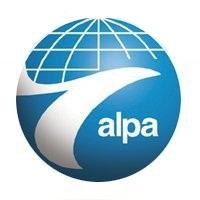Wed, Dec 19, 2012
Cites Cost Of Compliance As Primary Reason
The FAA has published in the Federal Register a flight crewmember duty and rest requirements docket that continues to exclude cargo pilots from its more stringent crew rest rules imposed on pilots on airplanes carrying passengers.

The FAA says that in its original Regulatory Impact Analysis (RIA), the portion of scheduling costs related to cargo-only operations of air carriers that conduct both passenger and cargo-only operations (mixed operations carriers) were inadvertently excluded from the reported costs of extending the final rule to cargo-only operations. The agency says the Initial Supplemental RIA fixes that omission and that revision has significantly increased the estimates of the stated costs of extending the final rule to cargo-only operations. Due to inclusion of impacts on cargo-only operations, a few air carriers were reclassified for ease of explication.
The FAA said in the filing that it assumed that benefits associated with averting a single catastrophic accident involving a cargo plane would range between $20.35 million and $32.55 million.
In a statement posted on its website, the Air Line Pilots Association (ALPA) said:
“After reviewing the FAA supplemental cost-benefit analysis of cargo operations in the new Federation Aviation Regulation (FAR) 117 flight-time/duty-time rule generated in response to the Independent Pilots Association suit, ALPA remains committed to ensuring One Level of Safety for all passenger and cargo operations.

“We believe calculating cost versus benefit based on the absence of an aircraft accident and resulting passenger fatalities is a fallacy, and a severe deficiency in the cost-benefit process. Because cargo aircraft do not carry passengers, it’s not surprising that the cost outweighs the benefit, yet cargo aircraft share the skies and airports with airlines conducting passenger operations. While government has shifted to evaluating safety improvements by eliminating accident precursors in other areas, it chose not to do so in this case. ALPA firmly believes that there is no price tag on the safety of our skies.
“We remain committed to pursuing a fix to the flawed cargo cutout from the new flight-time/duty-time rule, both through regulatory action and pursuit of the Safe Skies Act on Capitol Hill.”
The FAA will accept comments on the Initial Supplemental RIA through February 11th.
More News
Aero Linx: International Federation of Airworthiness (IFA) We aim to be the most internationally respected independent authority on the subject of Airworthiness. IFA uniquely combi>[...]
Ultrahigh Frequency (UHF) The frequency band between 300 and 3,000 MHz. The bank of radio frequencies used for military air/ground voice communications. In some instances this may >[...]
A Few Questions AND Answers To Help You Get MORE Out of ANN! 1) I forgot my password. How do I find it? 1) Easy... click here and give us your e-mail address--we'll send it to you >[...]
From 2019 (YouTube Edition): Learning To Paint Without Getting Any On Your Hands PPG's Aerospace Coatings Academy is a tool designed to teach everything one needs to know about all>[...]
Also: Sustainable Aircraft Test Put Aside, More Falcon 9 Ops, Wyoming ANG Rescue, Oreo Cookie Into Orbit Joby Aviation has reason to celebrate, recently completing its first full t>[...]
 ANN's Daily Aero-Linx (05.06.25)
ANN's Daily Aero-Linx (05.06.25) ANN's Daily Aero-Term (05.06.25): Ultrahigh Frequency (UHF)
ANN's Daily Aero-Term (05.06.25): Ultrahigh Frequency (UHF) ANN FAQ: Q&A 101
ANN FAQ: Q&A 101 Classic Aero-TV: Virtual Reality Painting--PPG Leverages Technology for Training
Classic Aero-TV: Virtual Reality Painting--PPG Leverages Technology for Training Airborne 05.02.25: Joby Crewed Milestone, Diamond Club, Canadian Pilot Insurance
Airborne 05.02.25: Joby Crewed Milestone, Diamond Club, Canadian Pilot Insurance




